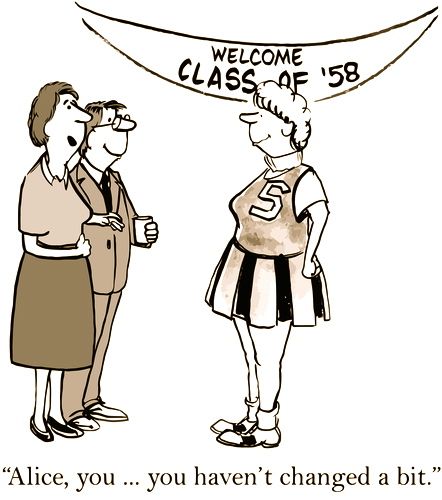Yesterday I filled out a form to volunteer for an association. It asked for my age group.
I wondered why?
What does age mean to an association?
I get you want demographics to make sure your involved members reflect the age distribution of potential members.
And you can market events better in the future if you know who is attracted to the event – but can you really?
Let’s take a closer look at age…
It’s not uncommon to find a 25 year old married with kids and working OR living at home with parents, periodically going to school and yet to pay their own bills.
The 25 years olds may have grown up with a similar relationship with technology AND have very different needs at this point.
Associations often acknowledge this difference with their young professional programs selecting a few responsible go-getters to represent their generation each year.
Now let’s flip to the other end of the age spectrum.
People live to be 100 every day – it’s no longer a shock.
Scientists have been saying for a few years today’s children may live easily to their 120s.
Edgier scientists talk about how living to the 500s may be possible if people stay alive for the next 10 or so years and start getting their system upgraded regularly with new technology.
Add to the mix medical advances make it possible to live whatever life you have more fully – at least in a physical way.
Classic aging starts to feel more optional.
What does this have to do with associations today?
What does it men if someone checks a box saying they are 55 – 64, 65-74 and 75+?
If a person is living until they are 100 in good health, they may be working into their 80s – with ease.
Do you have programs relevant to someone with 50 years of experience and still growing?
People formerly known as seniors (age 55+) may be the new professionals in your association.
Where is the 65 year old new professional’s home in your association?
It used to be 50s were the major earning decade of a person’s life – but is that true when someone might work another 30 years?
Roll those sleeves up – let’s get even more confusing…
Several decades ago, people tended to lock step their experiences through the decades with their age peer group.
- You got married in your 20s.
- Had high school age kids in your 30s.
- Became a grandparent in your 40s.
- If you were lucky, retired in your 50s.
You could guess someone’s age based on what they wore – each decade had a uniform of sorts especially for women.
This is no longer true.
Go to a 50-year high school reunion today and you’ll see two groups of people: Those who look like classic grandparents and those who look rather ageless.
What if that same group lives their lives how they look?
The classic grandparent type of person is pushing their 70s.
They are either retired or close to retirement. They may be sort of active or not really. They know aging is part of their life experience and have been already slowing down.
The other group is also pushing their 70s and decided to opt out of aging.
They don’t look or act their age. They are very active in life and work.
Speaking of work, they are planning to live until at least 100 so don’t plan to retire until at least their 80s or 90s.
In the next 20 or 30 years they may even start a new career!
As little as ten years ago, the majority of people were on the more classic aging track.
Not any more…
Age groups at athletic events are growing.
Science keeps pushing the edge of what is optional.
Every year, more people are moving into a more ageless space of being simply healthy adults – rather than aging senior citizens.
What if you have both of those groups in your association?
Does knowing someone is 68 really tell you a lot about them?
How do you meet the needs of those on the traditional aging senior route?
What about those who are embracing a more ageless approach to life?
All sorts of possibilities open up!
(We haven’t even touched the challenges that might happen if you created lifetime memberships – not expecting people to live to be 100+.)
Rethinking what a member’s age means in your association is an example of potential implications of the disruptive changes happening around us.
It’s already impacting your association if you open your eyes and start asking why to things that used to support an automatic assumption – like people who are 68 are retired senior citizens.
What other “normal ideas” do you need to question?
Keep hanging with us at Wake Up Wednesdays. We’ll be delving into more as we move forward.
Yours in Riding the Waves to the Future Together!
– Cynthia
If you want these posts sent to your inbox on Wednesday mornings, sign up for Wake Up Wednesdays!
Cynthia D’Amour
